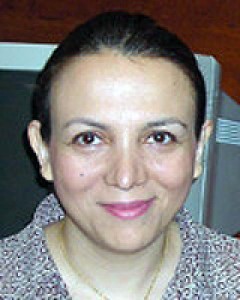early abstract:
Context: This report describes the community context, concept and mission of Memorial University of Newfoundland (Memorial) and its "pathways to rural practice" approach which includes influences at the pre-medical school, medical school experience, postgraduate residency training, and physician practice levels. Memorial's pathways to practice helped Memorial to fulfill its social accountability mandate to populate the province with highly skilled rural generalist practitioners.
Programs/Interventions/Initiatives: The "pathways to
rural practice" includes initiatives in four stages: (1) before admission to medical school (2) during undergraduate medical training (MD program) (3) during post-graduate vocational residency training (4) after post-graduate vocational residency
training. Memorial's Learners & Locations (L&L) database tracks students through these stages. The Aboriginal initiative, the MedQuest program and the admissions process that considers geographic or minority representation in terms of those selecting candidates and the candidates themselves - occurs before the student is admitted. Once a student starts Memorial's MD program, the student has ample opportunities to have rural based experiences through pre-clerkship and clerkship where some take place exclusively outside of St. John's tertiary hospitals. Memorial's postgraduate (PG) Family Medicine (FM) residency (vocational) training program allows for deeper community integration and longer periods of training within the same community which increases the likelihood of a physician choosing rural family medicine. After post-graduate training, rural physicians were given many opportunities for professional development as well as faculty development opportunities. Each of the programs and initiatives were assessed through geospatial rurality analysis of administrative data collected upon entry into and during the MD program and PG training (L&L). Among Memorial MD-graduating classes of 2011-2020, 56% spent the majority of their lives before their 18th birthday in a rural
location and 44% in an urban location. As of September 2016, 23 Memorial MD-students self-identified as Aboriginal where 2 (9%) were from an urban location, 20 (91%) were from rural locations.
For Year 3 Family Medicine, graduating classes 2011 to 2019, 89% of placement weeks took place in rural communities and 8% took place in rural towns. For Memorial MD graduating classes 2011-2013 who completed Memorial Family Medicine vocational training residencies, (N=49), 100% completed some rural training. For these 49 residents (vocational trainees), the average amount of time spent in rural areas was 52 weeks out of a total average FM
training time of 95 weeks. For Family Medicine residencies from July 2011 - October 2016, 29% of all placement weeks took place in rural communities and 21% of all placement weeks took place in rural towns. For 2016-2017 first year residents, 53% of
the first year training is completed in rural locations reflecting an even greater rural experiential learning focus.
Lessons Learned: Memorial's pathways approach has allowed for the comprehensive training of rural generalists for NL and the rest of Canada and may be applicable to other settings. More challenges remain, requiring ongoing collaboration with
governments, medical associations, health authorities, communities and their physicians to help achieve reliable and feasible healthcare delivery for those living in rural and remote areas.



